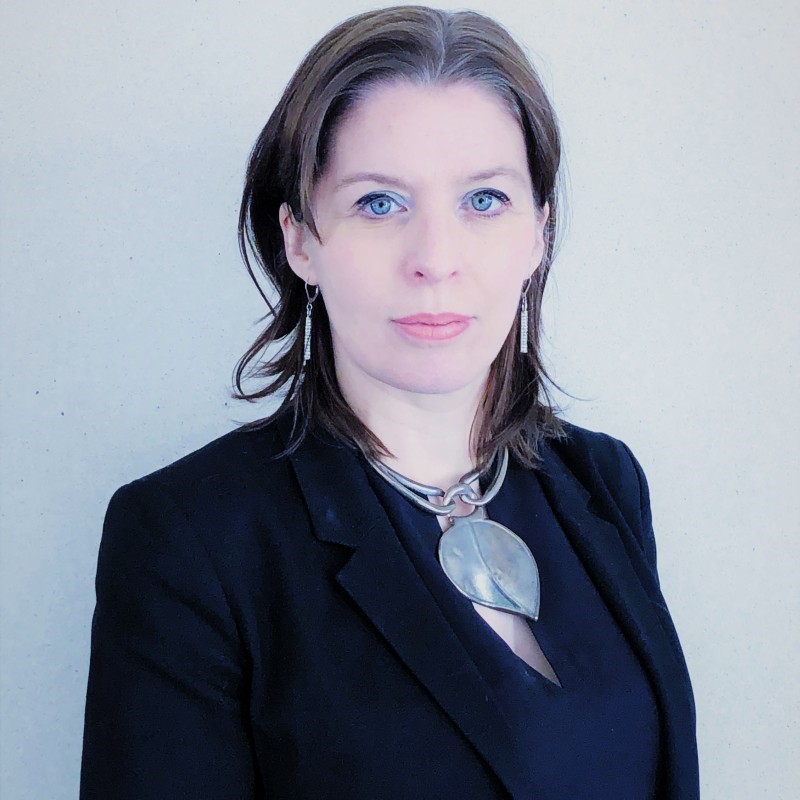Russia’s elections toolkit: dollars, disruption and disinformation

Hack and leak, astroturfing, perception hacking, reputation laundering: Russia has devised an armoury of new techniques to weaken and distract its opponents. In this second part of our investigation into electoral interference, Matt Ross explains how Putin’s outriders wage a surreptitious war against European and North American nations
Over recent years, countries across the democratic world have experienced Russian attempts to divide societies, weaken trust and undermine governments.
In our last article, which outlined Russia’s activities and explained what Vladimir Putin hopes to gain, we focused on its operations in the USA and UK. But according to the UK Parliament’s Intelligence and Security Committee (ISC), Russia’s regime is also suspected of interfering in France’s 2017 presidential election – when it arranged “soft loans” for Marine le Pen’s campaign, and targeted Emmanual Macron’s En Marche party with a ‘hack and leak’ operation.
At the same time, Russia got “involved in the German election,” says Michael Wernick, a former secretary to the Cabinet of Canada: organisations including the Brookings Institute have highlighted Russia’s use of disinformation, hacking and propaganda during the 2017 federal election. Wernick’s own country has also come under attack: “In Canada, we have seen – particularly from the Russians – attempts to feed in disinformation and sow division,” he says. Russian attempts to hack elections have been identified as far afield as Indonesia, whose government accused the country of trying to access its voter database in 2019.
Russia has been running these operations since the early 2000s. According to the ISC, Russia “undertook influence campaigns in relation to the Scottish independence referendum in 2014” – backing the independence campaign in a bid to divide the UK. That same year it intervened in the Ukrainian general election, using a combination of ‘hack and leak’ techniques, attacks on the electoral system, and cyber assaults that took the elections regulator offline.
So the threat is global, and Russia has long experience of intervening in national debates and election campaigns around the world. In this second section of our five-part report on elections interference, we’ll profile the tools and techniques deployed by Russia. Our first report outlined Russia’s goals, and subsequent reports will examine China’s operations and explore how democratic nations can best respond.
Disinformation and propaganda
Putin’s people pursue their aims via “multiple vectors”, explains Lutz Güllner, head of strategic communications (foreign information manipulation and interference) at the EU’s European External Action Service. Alongside security and intelligence services and diplomatic networks, he says, Russia’s communications operations include a range of media outlets – most obviously TV station Russia Today and news website Sputnik – “and then it flows into more of a grey area, with websites that pose as information portals, and deep into social media structures where we see a lot of inauthentic identities”.
Over recent years, Russia’s Internet Research Agency (IRA) and its allies have commissioned people to masquerade as western citizens – creating ‘troll farms’ – and operated armies of bots to redistribute and amplify their messages. As well as exacerbating tensions and resentment within democratic nations, says the ISC, these ‘astroturfing’ campaigns give “politicians, journalists, and other people who may have power and influence the impression – simply via the sheer quantity of posts – that the views espoused are genuinely those of a majority of their country’s public”.
Read more: Escaping the echo chamber: how governments are combating disinformation
Russia is opportunistic in choosing which issues to target with these communications assets, says Elisabeth Braw, a senior associate fellow at the European Leadership Network and a member of the UK’s National Preparedness Commission. “When they spot an opportunity, they exploit it,” she says. “And that’s actually much better than having a strategy, because coming up with a narrative and a campaign is complicated, time-consuming and resource-consuming; and you don’t know whether you’ll convince anyone. Whereas if the controversy is already out there, you can just dive into it and amplify. It doesn’t even have to benefit Russia as such; you can just jump into anything that weakens another country.”

As well as intervening in both sides of the debate around police violence against African-Americans, for example, during 2016 the IRA ran astroturfing campaigns for groups as varied as Muslims, the LGBTQ+ community, and social conservatives. Russian operatives “were particularly clever tactically in micro-targeting sections of the electorate, including in particular swing states and districts,” comments David Salvo, a former State Department security policy advisor now working as managing director of transatlantic campaign group the Alliance for Securing Democracy. An investigation by the New Yorker found evidence that Russia had worked hard to build support for Trump among churchgoing Christians and military veterans: traditional Republican voters who had qualms about Trump’s treatment of women and his Vietnam draft-dodging.
To heighten the impact of its interventions, Russia works to weaken trust in established information sources – encouraging the tendency for people to rely only on information from providers that share and reinforce their own convictions. It is no coincidence that for many years Russia Today – now banned in the EU – used the slogan ‘Question More’, points out Salvo. “They’ve helped to inflame an information environment that is post-truth and post-fact,” he says. “Russian information operations have an over-arching objective: how can we create an environment in which no one believes anything anymore?”
As well as fostering mistrust in traditional media and public bodies, Russia pursues this goal by flooding the internet with many contrasting perspectives – creating doubt and uncertainty. After Russia poisoned Sergei Skripal, a former KGB agent who’d defected to the UK, “we saw dozens of narratives being deployed,” says Güllner. “We can deduce that this is not about informing, but about confusing; about swamping the field with different versions, narratives, voices”.
Election hacking
As well as seeking to influence the national conversations in democratic countries, Russia injects them with inflammatory new information – sometimes via ‘hack and leak’ operations, in which it steals and publishes data to discredit and damage its enemies. Most famously, in 2016 hackers affiliated to Russia’s GRU military intelligence service stole files and emails from both the Democratic National Committee (DNC) and the Hillary Clinton campaign, releasing 19,000 emails and 8,000 attachments immediately before the Democratic Convention.
Selectively publishing documents through Wikileaks, the Russian operatives exposed campaign in-fighting, revealed the Democrats’ plans, and made public material critical of Catholic voters. They also made good use of stolen voter data analytics and turnout figures, targeting key groups of voters with anti-Clinton material.
Russia has carried out similar operations in the UK: in December 2023, the UK accused Russian security service the FSB of targeting parliamentarians, government departments, think tanks and journalists with hacking operations. UK Foreign Office minister Leo Docherty accused the FSB of mounting “a sustained effort to interfere in our democratic processes”, and of “using information they obtain to meddle in British politics”. These activities go as far back as 2015, said Docherty; former foreign secretary Dominic Raab has previously said that the department was “almost certain that Russian actors sought to interfere in the 2019 general election through the online amplification of illicitly acquired and leaked government documents”.
Read more: Organised chaos: how Russia weaponised the culture wars
More directly, Russia also attempted to hack into voter registration systems and voting records in dozens of US states. Its goal, Güllner explains, was that of “perception hacking”: it did not seek to change the election results, but to undermine trust in the process. “With a few information operations, you make people believe that you have the ability to change entire processes – which is not the case,” he says. All these activities, notes Salvo, built up public suspicion of established politicians and institutions: “From the narratives that they seed into the ecosystem, to the hack and leak operation on the DNC, they’re all designed to engender this culture of distrust – and populist candidates seize on that.”
Russia’s money
Russia’s electoral interference operations are not confined to the digital world. For years, a steady flow of Russian money poured into western capitals – particularly, the ISC’s Russia report found, to the city that “has been referred to as the London ‘laundromat’”.
Much of this funding was “invested in extending patronage and building influence across a wide sphere of the British establishment – PR firms, charities, political interests, academia and cultural institutions were all willing beneficiaries of Russian money, contributing to a ‘reputation laundering’ process,” said the committee, adding that “there are a lot of Russians with close links to Putin who are well integrated into the UK business and social scene, and accepted because of their wealth. This level of integration – in ‘Londongrad’ in particular – means that any measures now being taken by the government are not preventive but rather constitute damage limitation”.

This is also an issue in the USA, says Salvo, with “money coming into real estate and shell companies, and hiding ties to state-connected actors back in Russia. That money can then get filtered into political action committees, which – because of our crazy campaign finance laws – are not disclosed”. However, he adds: “I think it happens at much less of a scale than it does in the UK.”
Indeed, under PM Boris Johnson the Conservative Party took large amounts of money from donors with close ties to Russia: more than £1.9m (US$2.3m) between July 2019 and November 2021 alone, according to the Labour Party – with £700,000 (US$850,000) of this coming from Lubov Chernukhin, the wife of Putin’s former deputy finance minister. Despite Johnson’s downfall, this money is still flowing: since Russia invaded Ukraine in February 2022, the Tories have received at least £240,000 (US$290,000) from Russian-born donors, including Chernukhin.
While non-UK nationals are not formally permitted to donate to political parties, the rules are almost impossible to enforce. “There are significant risks in the government’s failure to close loopholes in election donation laws, not least around foreign interference in our political process,” Lord Evans, a former UK domestic intelligence chief then serving as chair of the Committee on Standards in Public Life, warned in October. “This is where public standards meet national security.”

This is concerning: “Once you’ve got someone who’s paying the piper, there’s always a question about who’s calling the tune,” comments Edward Lucas, a Russia specialist, ISC expert witness and senior fellow at the Center for European Policy Analysis, who points to a series of appointments and peerages handed out by Conservative Party leaders.
Take the case of Ehud Sheleg, made party treasurer and given a knighthood after donating £3.5m (US$4.4m) to the Tories. His bank Barclays raised the alarm over a £450,000 (US$570,000) donation in 2018, suggesting that the money had come from Russia via his Ukrainian father-in-law – though Sheleg’s lawyer challenged this, and the National Crime Agency found that no laws had been broken.
Into the media

Then there’s Evgeny Lebedev, the son of former Russian intelligence officer Alexander Lebedev and owner of the London Evening Standard – who was made a life peer by his friend Boris Johnson despite the concerns raised by intelligence agency MI5. “We don’t know exactly his relations and his dealings with the Russian government,” comments Braw. “But it’s likely that he will advance ideas that are more sympathetic to Russia than other members of the House of Lords.” Still more importantly, she adds, “the presence of someone like that really discredits the House of Lords; so it harms the UK, even before he has said a single word”.
“I don’t think there’s any doubt that our political parties – and the Conservative Party in particular – have been susceptible in the past to Russian influencing operations,” comments Ben Bradshaw MP. “Hostile state actors will always seek to influence politics and political parties and political processes in all democracies, particularly those as strategically important as Britain.”
Those hostile state actors include China – but the country’s approach is very different from that of Russia. In the next part of this report we’ll explore China’s attempts to influence elections overseas, and identify the common weaknesses and policy errors that make western democracies vulnerable to foreign interference.
This is the second part of our report into the attempts by government-backed actors – particularly in Russia and China – to influence election outcomes and national debates in the democratic world, with the use of tools including disinformation campaigns, election hacking and party donations.
You can read the first part of the report here, covering Russia’s goals: Organised chaos: how Russia weaponised the culture wars
The third part covers China’s goals and tools in its electoral interference work: A subtle opponent: China’s influence operations
And the fourth and fifth parts cover ways to tackle election interference: Knowing and showing: how intelligence and transparency can combat electoral interference, and Defeating disinformation: how to create a healthier national conversation























